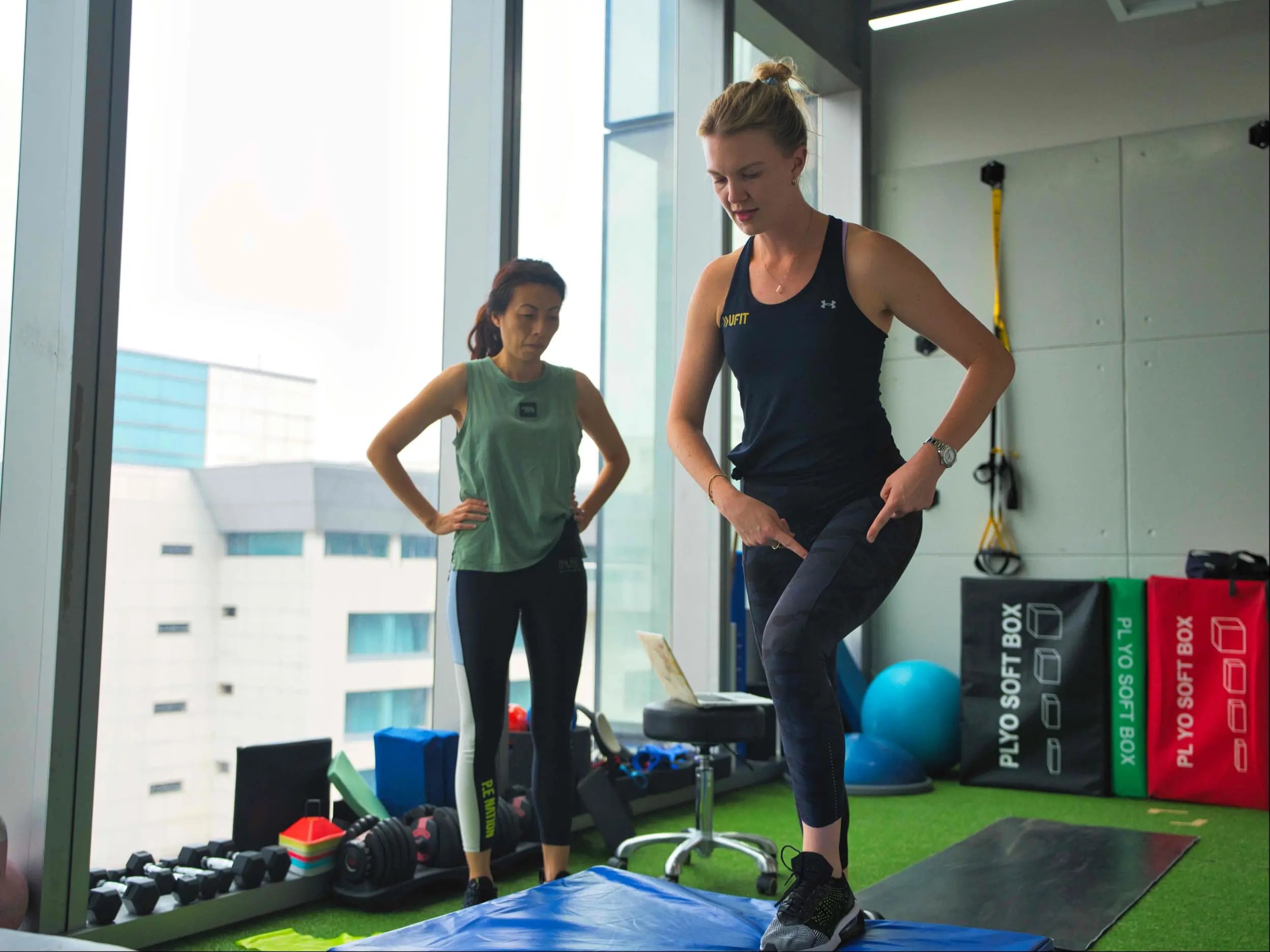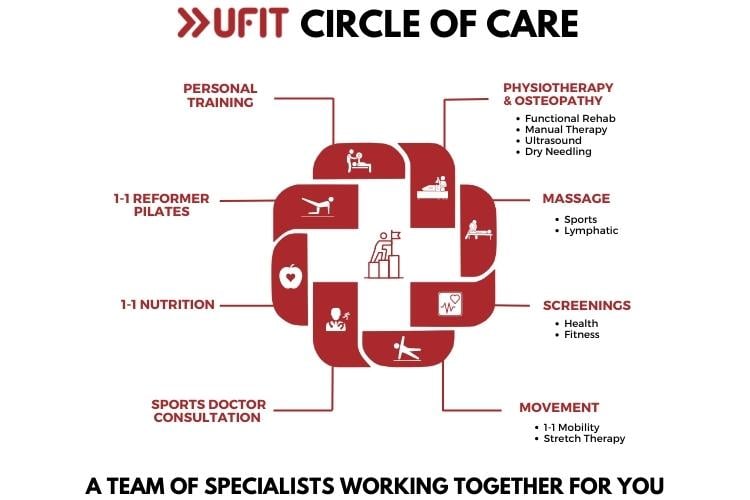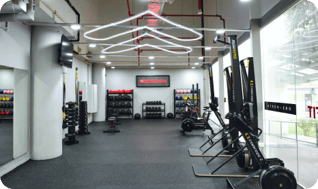For physically active individuals, the idea of seeking professional help from physiotherapy (or “physio”) to assist with or prevent injuries is nothing new.
However, despite a well-established understanding of its benefits, individuals still doubt whether physio provides sufficient benefits relative to the time and effort required to see results. Perhaps the most sceptical are moderately active individuals, who may perceive physio as too holistic and an interference to their training routines.
We’re here to change that by explaining why physio, specifically its sport-specific counterpart (sport physiotherapy), is worth your time and, for some individuals, is the key to unlocking their full potential in fitness and sport.
What is Physiotherapy?
Physiotherapy, or general physiotherapy, is a health profession dedicated to improving quality of life and well-being through a variety of specific techniques and interventions. In Singapore, physiotherapists must be regulated by and legally registered with the Allied Health Professions Council, a body under the Ministry of Health.
To assess, diagnose, and treat conditions that can affect the body, physiotherapists use a toolkit of specialised treatments, including massage, electrotherapy, acupuncture, exercise prescriptions, and posture and lifestyle guidance. They work with a variety of individuals, including those recovering from injuries, managing chronic conditions, and rehabilitating after surgery.
What is Sports Physiotherapy?

Sports Physiotherapy, also known as athletic physiotherapy, is a specialised branch of physiotherapy. It focuses primarily on the prevention, diagnosis, treatment, and rehabilitation of injuries and conditions related to sports and physical activity.
Sports physiotherapists often receive additional training and education and specialise in sport-related injuries and conditions. They work with individuals of all ages and activity levels, from recreational enthusiasts to professional athletes.
Sports Physiotherapy offers a host of sport-specific benefits, each contributing to an individual’s overall well-being:
- Injury prevention: Sports physiotherapists are trained to assess an individual’s biomechanics, movement patterns, and physical condition to identify risk factors for injury and prevent them before they occur.
- Assessment and evaluation: When a physically active individual is injured, a sports physiotherapist plays a key role in assessing and diagnosing the extent of the problem. This often requires a comprehensive examination.
- Treatment and rehabilitation: Sports physiotherapists use a variety of techniques to treat and recover injuries. This can include manual therapies such as sports massage and joint mobilisation, as well as therapeutic exercises and flexibility programmes.
- Return to sport planning: An important aspect of sports physio is the development of a structured and specific plan for an individual to return to sport following an injury. This considers an individual’s readiness, rehabilitation progress, and potential risk of re-injury.
- Performance improvement: In addition to managing injuries, sports physiotherapists may work with individuals to improve their performance. This can include improving biomechanics, strength and conditioning, and addressing any factors that may impact an individual's optimal performance.
Which one’s right for you?
So, the question is: which should you choose - general physio or sports physio? This decision hinges on several factors, including your lifestyle and activities, the nature and severity of your issue, and your personal goals, expectations, and budget.
Regardless of which you choose, the importance of consulting with a qualified physio cannot be overstated. However, for those of you whose routines go beyond activities of daily living, the choice is clear. A sports physiotherapist is more likely to understand the unique demands of your chosen activity and can offer tailored and targeted interventions. That’ll ensure the best chance of a successful rehabilitation.
UFIT: Your sports physio solution
Enter UFIT Physiotherapy, our team of dedicated and passionate sports physiotherapists, who can guide you through the intricacies of your injury.
From martial arts and weightlifting to running and racket sports, our team’s diverse sports backgrounds uniquely equip them with insight into the specific aches and injuries caused by your activities.
Our philosophy dismisses the one-size-fits-all mentality often associated with physio. It's not just about alleviating your pain; it's about you moving better, feeling better, and performing better.
To put that into context, if you injure your knee playing football and want to get back to playing as soon as possible. Rather than simply treating your injury by … well, treating just the knee, we work hard to identify the root cause of the issue. Once identified, the journey of empowering you begins.
Beyond Physiotherapy

But that journey will rarely be straightforward or isolated, so your path to recovery shouldn’t be either.
While sports physio is an essential part of your rehabilitation, it’s just one piece of a larger puzzle that can help you return to your chosen activity faster. Achieving optimal results may require a multifaceted approach, such as improving flexibility and mobility, optimising nutrition, or receiving tailored programming from a personal trainer.
That's why we’ve fully integrated our services into our Circle of Care, an all-encompassing program that gives you access to a consolidated package comprising all our 1-1 services. This means that you can channel your energy into your rehabilitation journey, sparing you the hassle of travelling to and paying for services scattered across Singapore.
Start performing and feeling better
Look, we get it—we’re no strangers to an active lifestyle. We understand that the last thing you, as a physically active person, want is to interrupt your training. But if problems are ignored, the nagging aches today can become the pains of tomorrow, which will impact your performance of enjoyable activities.
We’re here to help ensure that doesn’t happen. Your recovery doesn’t need to be sub-optimal, it can lead to you bouncing back stronger than before, but that can only happen if you have the right knowledge and tools available to you.
Your strong return to the activities you love starts here. Expertly managed under one roof at UFIT.


.png?width=301&height=187&name=Website%20Navigation%20Images%20(3).png)

-1.jpg?width=1984&height=1196&name=UFIT%20Club%20Street%20Front%20(4)-1.jpg)






